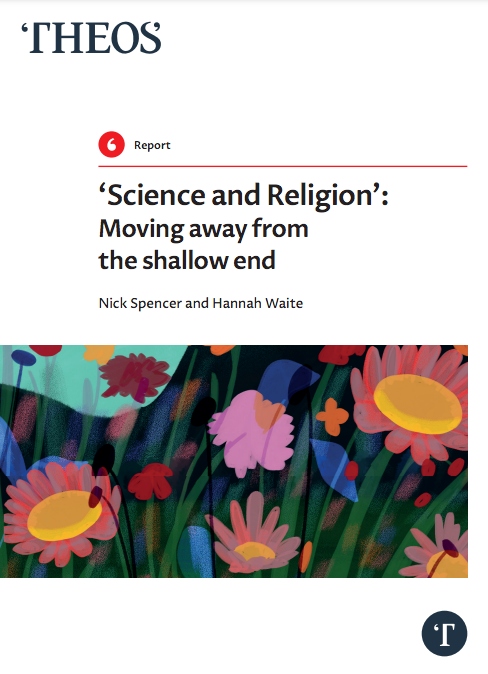Religion has a place in the modern world - Gen Z
A new study suggests a more balanced perspective towards the relationship between science and religion in younger generations
 New research has found Gen Z (aged 16-24) are more likely to think religion has a place in the modern world than any other generation, while having a better understanding and greater acceptance of science (57 per cent). This compares to less than half of Millennials (aged 25-40; 47 per cent) and Gen X (aged 41-56; 47 per cent). The data also revealed that 37 per cent of Gen Z think science and religion are compatible, compared with only 30 per cent of the British public and 26 per cent of Gen Xers.
New research has found Gen Z (aged 16-24) are more likely to think religion has a place in the modern world than any other generation, while having a better understanding and greater acceptance of science (57 per cent). This compares to less than half of Millennials (aged 25-40; 47 per cent) and Gen X (aged 41-56; 47 per cent). The data also revealed that 37 per cent of Gen Z think science and religion are compatible, compared with only 30 per cent of the British public and 26 per cent of Gen Xers.
The think tank Theos has analysed data provided by YouGov also found that among Gen Z:
-
More than two thirds (64 per cent) agree that it is possible to believe in God and evolution – at least 10 per cent more than any other age group.
-
68 per cent believe that you can be religious and be a good scientist - 10 per cent more than any other age group.
-
79 per cent agree that there is strong and reliable evidence for the theory of evolution and 83 per cent are confident they understood it – more than any other age group.
-
Nearly a quarter (24 per cent) disagree that science is the only way of getting reliable getting knowledge about the world – more than the other generations
-
Over two thirds (62 per cent) disagree that religion has nothing helpful to say about ethics – significantly higher than Millennials (53 per cent), Gen X (45 per cent) and Boomers (53 per cent).
-
More (44 per cent) disagree that science will be able to explain everything one day – more than other generations
The findings are part of a new report from Theos and The Faraday Institute investigating the science and religion debate in the UK today which also included interviews with leading scientists and philosophers, including Brian Cox, Susan Greenfield, Adam Rutherford, and A.C. Grayling. The report is the culmination of a three–year project - Science and religion: reframing the conversation - researching public and elite attitudes to science and religion in the UK today.
The report found that the majority – 57 per cent of the general population – still think that science and religion are incompatible. This view, however, seems to be a reaction to the words “science” and “religion”. Antagonism is dramatically reduced when people are asked about specific disciplines like cosmology or psychology (as opposed to “science”) or about specific religions like Christianity or Islam (as opposed to “religion”).
The majority (68 per cent) of Gen Z respondents believe that you could be religious and be a good scientist - at least 10 per cent more than any other age group.
Moreover, a high proportion of both religious and non-religious across the generations agree with scientific theories. For example, 74 per cent of people agree there is “strong, reliable evidence to support the theory of evolution”, compared with 6 per cent who disagree. The majority (64 per cent) of Gen Z thought it was possible to believe in both evolution and God.
Chris Done, Professor of Astrophysics and Theoretical Physics (University of Durham) said, 'I think the study shows most that there is much less of a conflict for anyone who has had to think a bit about it, whether they be a practicing scientist or a practicing member of a faith community. The idea of a problem comes more from those who aren't either, who have just picked up the cultural zeitgeist.'
Nick Spencer, Senior Fellow at Theos said, 'Our research revealed that the debate between science and religion has been distorted by being viewed through a few narrow lenses – such as evolution vs creation(ism) or the Big Bang vs God. There is a far richer conversation to be had and our interviews with experts and with the general public, particularly younger people, suggests that we are moving in the right direction.'
Baptist Times, 05/05/2022